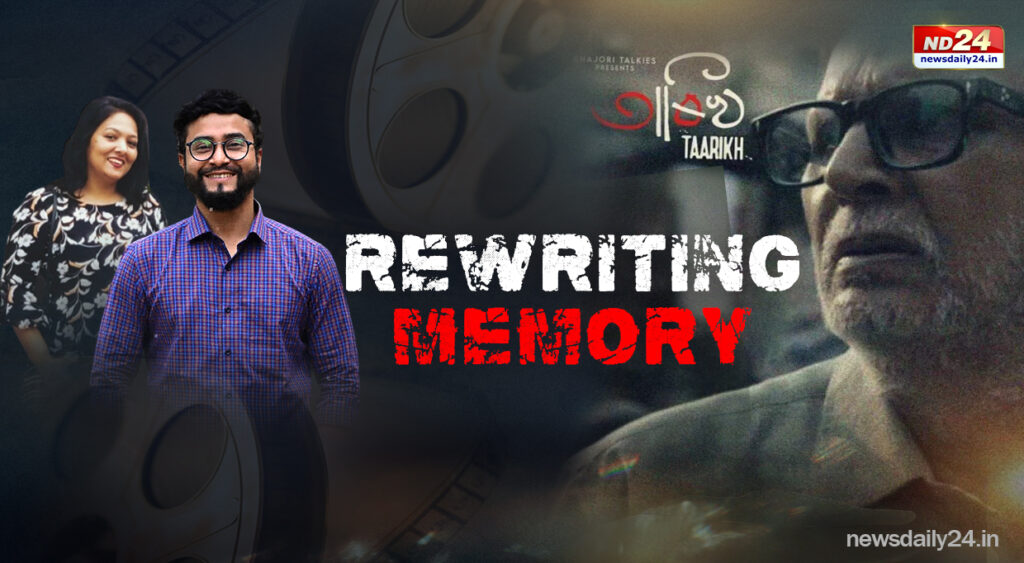In a cinematic landscape often crowded by formulaic storytelling and commercial compulsions, the upcoming 2024 Assamese film Taarikh aims to stand out as a thoughtful, politically aware, and artistically rich work. At its core is not just a powerful story, but the passion of two visionaries who dared to dream beyond boundaries — Arundhati Sarmah Baruah and Muktismaan Hazarika, the producers of the film.
Directed by Himjyoti Talukdar, Taarikh is expected to take viewers on a reflective journey through memory, identity, and historical trauma. It aims to explore the emotional scars left behind by conflict and the silences passed down through generations, say the producer duo.
Baruah is well known in Assam’s cultural circles. Actively involved in grassroots cultural initiatives and a strong supporter of indigenous art forms, Taarikh marks her entry into film production with a clear commitment to meaningful cinema. For her, the film is more than just a creative project — it’s a mission to protect truth, spark dialogue, and bring long-buried stories into the light.
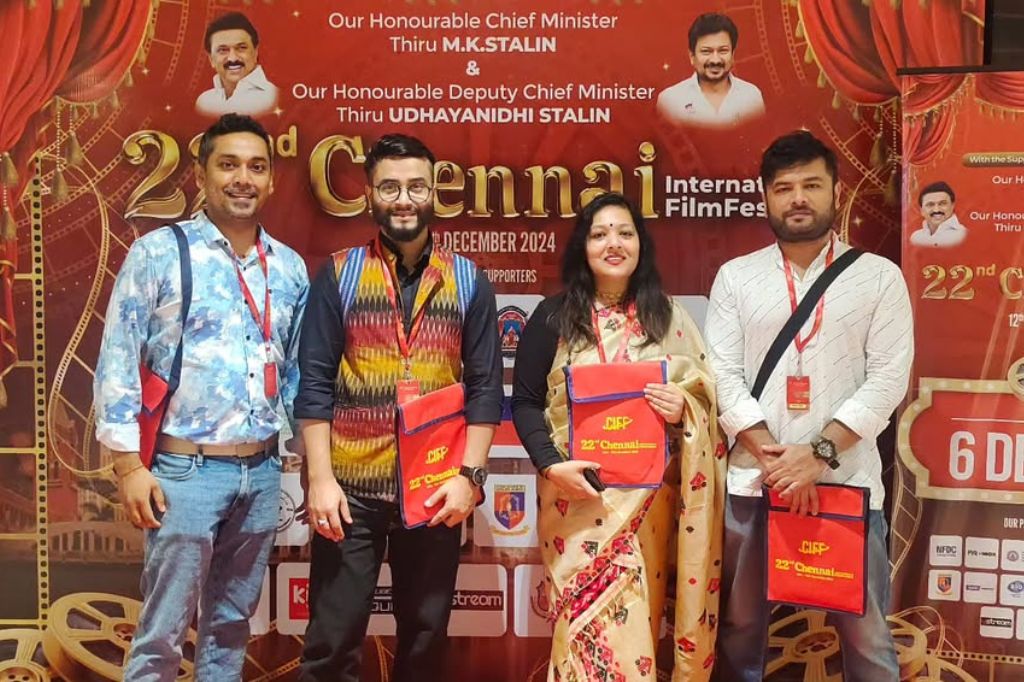
Her role as producer went far beyond finances or logistics. She was deeply involved in the research and development phase, making sure the film’s emotional tone stayed true and culturally grounded. Her strong understanding of Assam’s social and political landscape was key in shaping Taarikh into a story that could resonate both locally and globally.
Hazarika brings a rare combination of academic insight and emotional depth to the project. As a scholar and writer, his involvement represents a conscious effort to connect intellectual thinking with visual storytelling. With Taarikh, he hopes to turn historical truth into cinematic narrative — a process that calls for both courage and clarity.
His belief in cinema as a tool of public pedagogy meant that Taarikh was designed not only to be watched, but to be discussed, debated, and remembered.
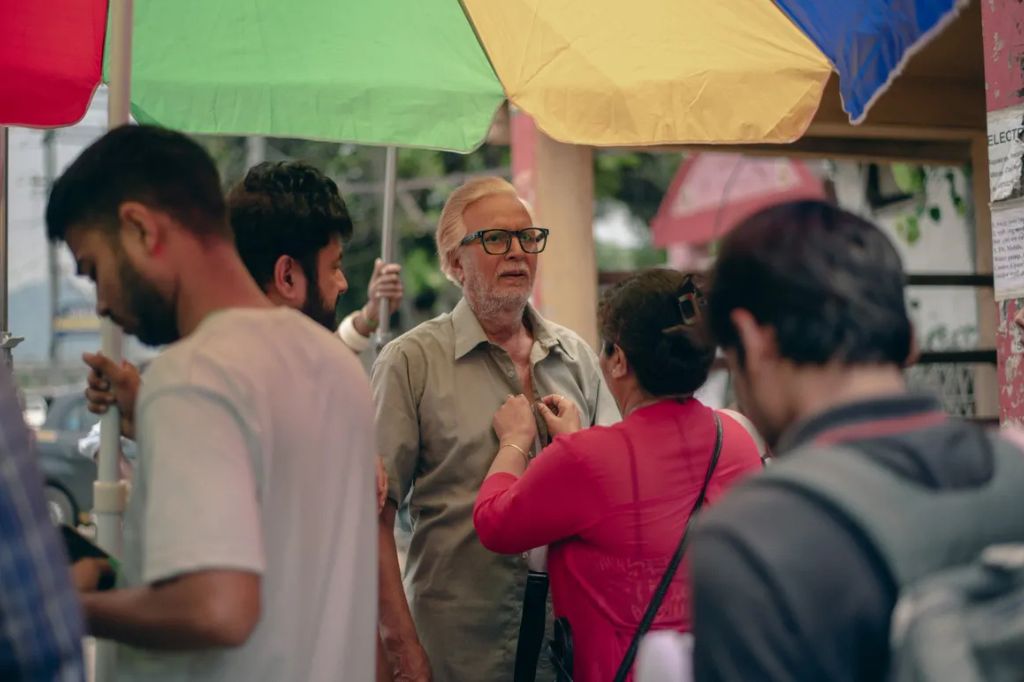
At the heart of Taarikh is the story of Durlov Dutta, a retired schoolteacher whose life is irreversibly transformed by the loss of his only son in the 2008 Assam serial blasts — a series of coordinated bombings that shook Assam, claiming nearly 100 lives and leaving hundreds injured. Through Durlov, Taarikh explores not only the personal cost of terrorism but also the quiet endurance of those who live with its aftermath.
“Taarikh” — the Assamese word for date — is a title loaded with significance. It refers not only to October 30, 2008, but also to the many “taarikhs” that haunt survivors of violence: court dates, death anniversaries, newspaper dates, the dates on which life takes a turn. The film subtly weaves these markers into its narrative, not through didactic dialogue but through imagery — a wall calendar with torn pages, a scribbled diary, a bookmarked newspaper.
The Assamese-language drama Taarikh is scheduled to premiere in cinemas on 22 August 2025 across India. It previously premiered at the Chennai International Film Festival in December 2024 and was featured at the Pune International Film Festival in early 2025
In an exclusive conversation, Hazarika and Baruah delve into the making of Taarikh, sharing insights into its vision, challenges, and creative journey.
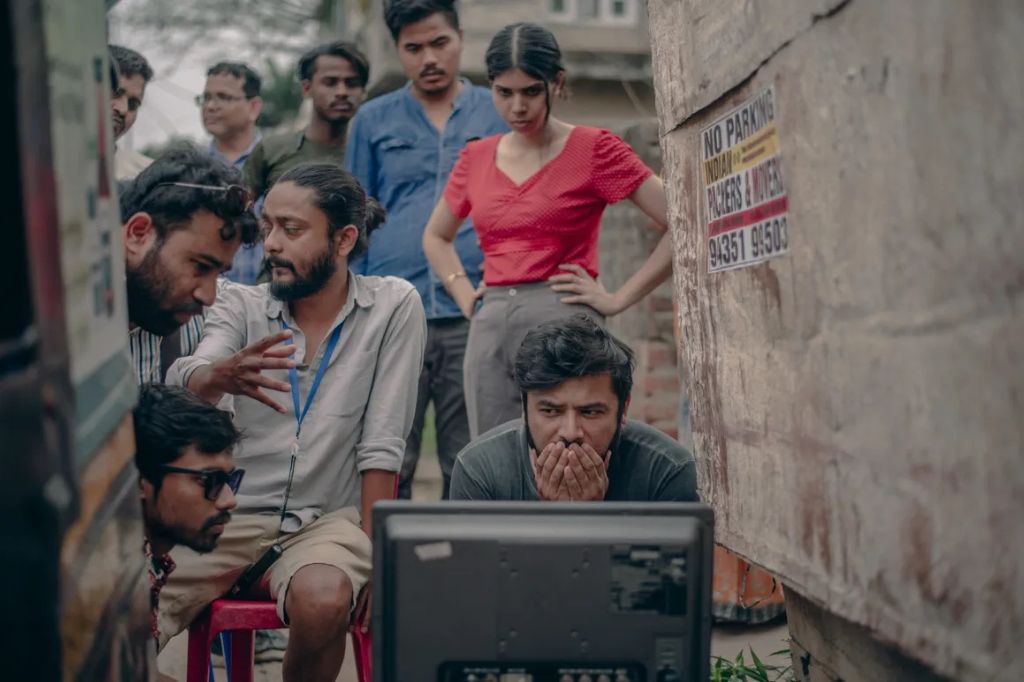
Q. Taarikh is such a layered and emotionally charged film. How did you first become involved in the project, and what drew you to its subject matter?
A. Arundhati Sarmah Baruah: Honestly, Taarikh just happened organically for us. Himjyoti (Talukdar) is a dear friend to both of me and Muktismaan (Hazarika) and this story has always been his dream. We can’t even pinpoint the exact moment we became producers because it was more like being part of a friend’s journey from the very start.
Muktismaan Hazarika: We still remember the silence that fell over Guwahati on the day of the 2008 serial blasts. Himjyoti’s approach to the film—focusing on loss, healing, and moving on rather than the politics of the event—instantly resonated with me.
Q. What were your initial conversations like with director Himjyoti Talukdar?
A. Arundhati Sarmah Baruah: Very informal and heartfelt. We were friends before we were collaborators, so our earliest talks were about feelings, not logistics. This was never meant to be a film of loud statements; it’s about quiet ripples of memory and pain.
Muktismaan Hazarika: Himjyoti had a very clear, sensitive vision, and Arundhati ba and I immediately felt aligned with the tone—subtle, meditative, and deeply human.
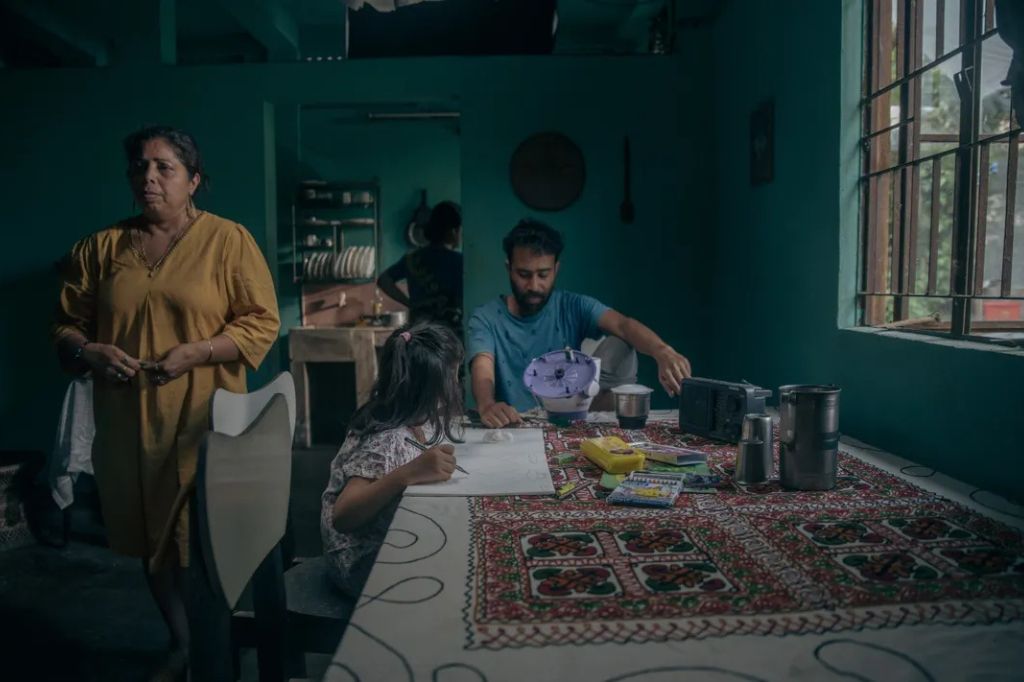
Q. Hazarika, you are uniquely positioned between academia and cinema through Cotton University. How do you see institutions like Cotton contributing to regional filmmaking?
A. Muktismaan Hazarika: Well, Cotton University has always been a hub for creativity and critical thought. I believe universities like ours can bridge research and filmmaking beautifully. They can offer resources—bright students, intellectual guidance, and even locations. Taarikh and several other Assamese films are examples of that bridge in action.
Q. Do you feel students and academics bring a different sensibility to filmmaking?
A. Muktismaan Hazarika: Absolutely. They are naturally reflective and research-oriented. That sensibility really helped with Taarikh because the film thrives on silences and subtleties. Even our student team members instinctively understood the emotional weight the film carried.
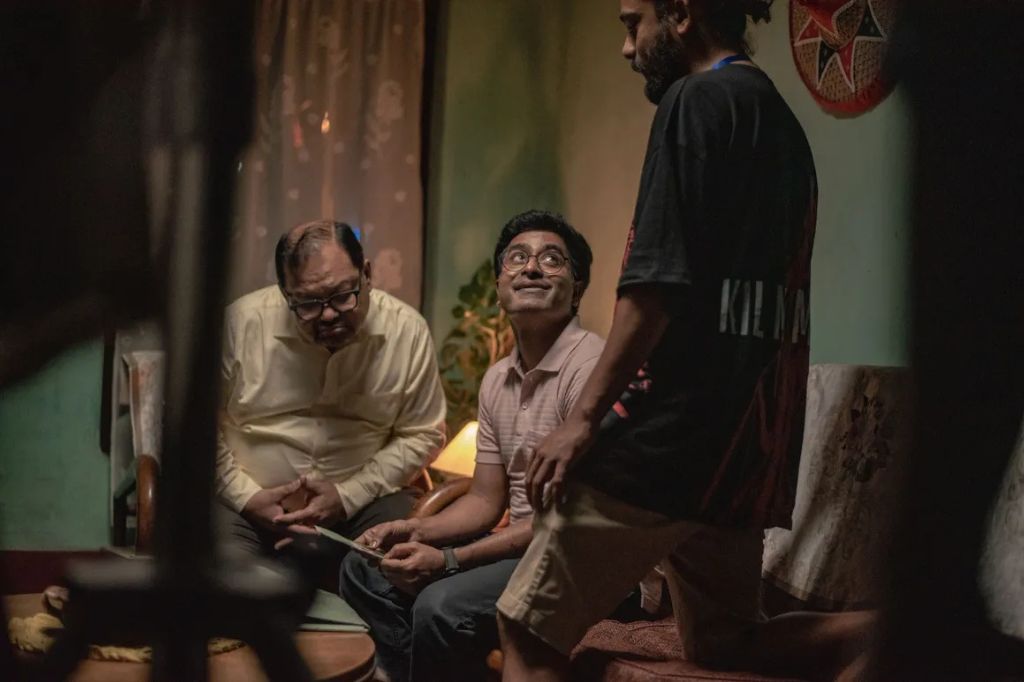
Q. Was Cotton University directly involved in the making of the film?
A. Muktismaan Hazarika: No, Cotton is not directly involved in making the film. But I’m really proud that students from my Department of Mass Communication, Journalism and Media Studies, and even other departments, pitched in enthusiastically. One of my students became the Assistant Director—his very first film! Faculty members helped us secure locations, and even hostel students got involved. Viewers will definitely spot many familiar Cotton faces in the film.
Q. Baruah, as a first-time producer, what was the biggest challenge in handling a story about historical trauma?
A. Arundhati Sarmah Baruah: Balancing sensitivity with storytelling. When you touch real-life tragedy, you must be careful not to sensationalize it. And of course, financial challenges were always there—independent films demand a lot of heart and resourcefulness.
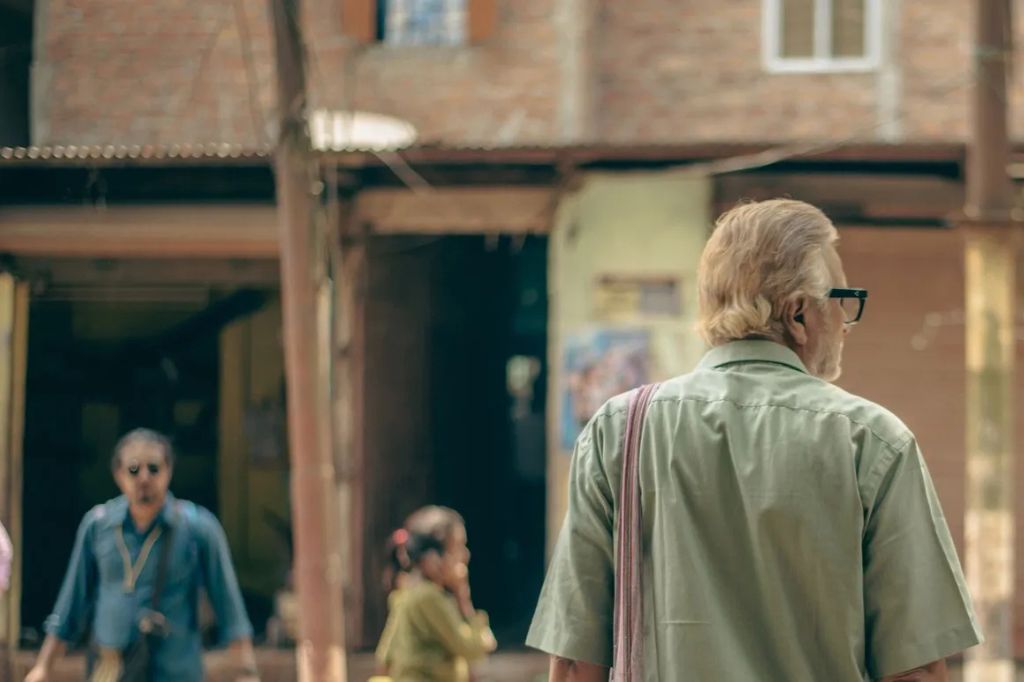
Q. How do you think younger audiences will respond to a meditative, unconventional film like Taarikh?
A. Arundhati Sarmah Baruah: I think they’re ready for it. Today’s young audience values authenticity. Taarikh doesn’t rush or over-explain—it lets the emotion sink in. I believe those who watch it will carry its feeling long after the credits roll.
Q. Do you feel a sense of responsibility to tell stories rooted in Assam’s socio-political history?
A. Arundhati Sarmah Baruah: Yes, very deeply. Assam’s identity is built on memory and resilience. If we don’t tell these stories, they risk being forgotten. For me, Taarikh is a way of contributing to that collective memory.
Q. Hazarika, what were the creative or logistical challenges during production?
A. Muktismaan Hazarika: Finding the protagonist Durlav Dutta’s house was surprisingly tough—it’s almost like a character in the film. We eventually found the perfect house in Kharghuli. Also, we shot the entire film in just 12 days, in a single schedule. Despite our small budget, the support and goodwill from everyone around us were incredible.
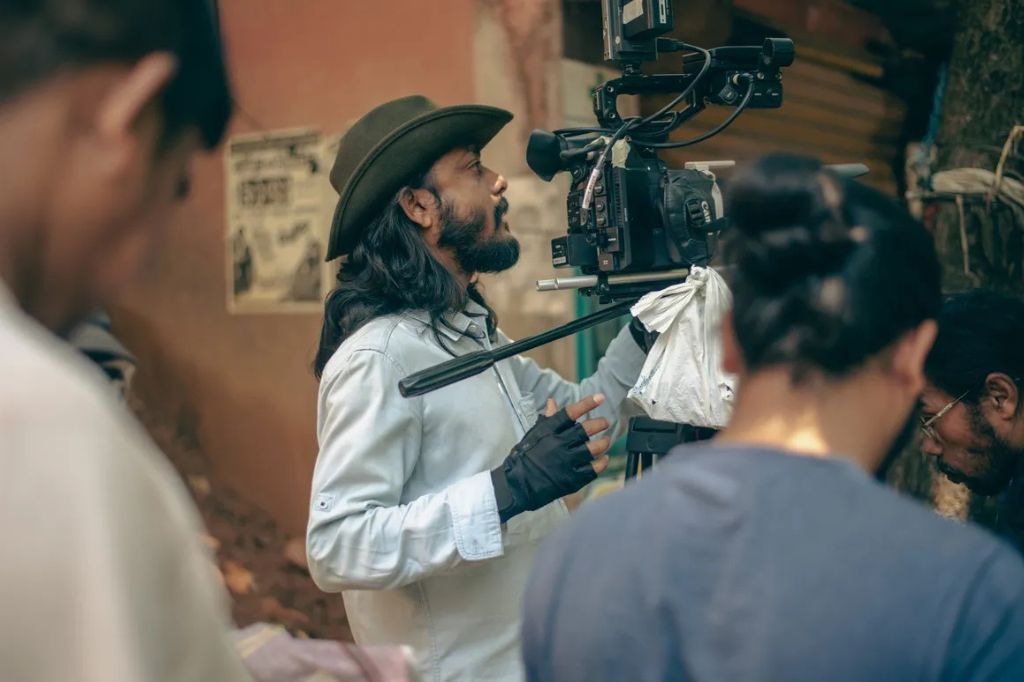
Q. The film’s minimalism is striking. As producers, how did you balance artistic integrity with commercial considerations?
A. Arundhati Sarmah Baruah: We were very clear: Taarikh had to remain true to its meditative tone. Minimal music, long silences, static frames—these were conscious choices.
Muktismaan Hazarika: Commercial demands take a back seat when the story requires sincerity. If you make a film with honesty, it will eventually find its audience.
Q. Hazarika, do you see yourself continuing in the space where cinema meets academic inquiry?
A. Muktismaan Hazarika: Definitely. Assam has so many untold stories—folklore, ecological memory, political histories—that deserve to be explored with both research and emotion. I’m drawn to projects that live in that intersection of thought and feeling.
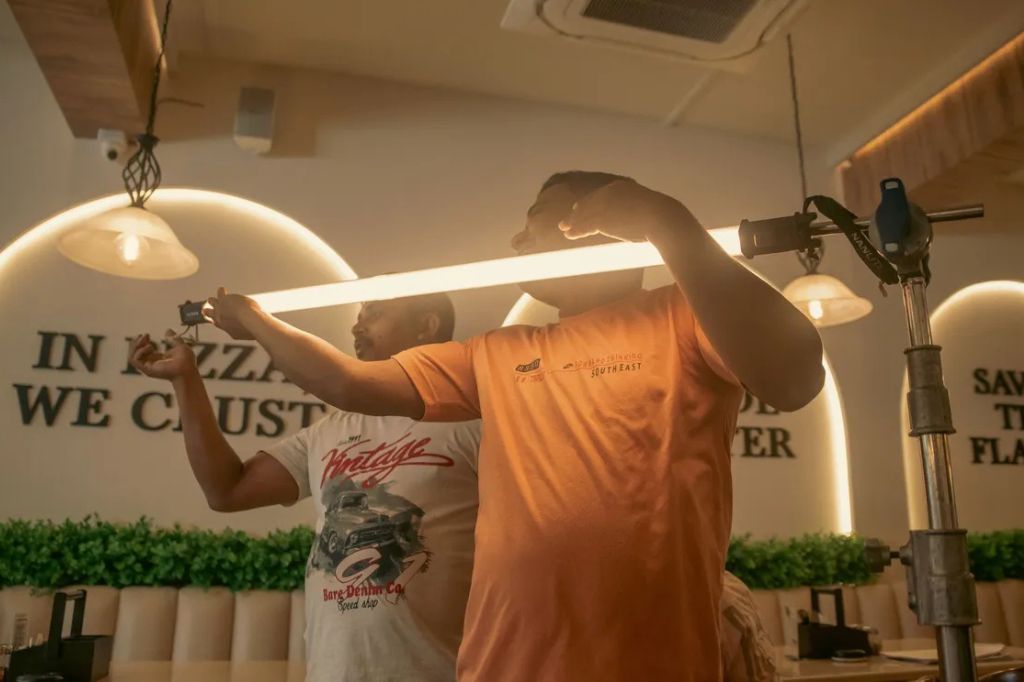
Q. What advice would you give to students or young professionals from non-film backgrounds who want to enter cinema?
A. Arundhati Sarmah Baruah: Start small and stay curious. Your academic background is your strength—it gives you perspective and depth. Join projects, assist, observe, and most importantly, trust your unique lens as a storyteller.
Q. Has Taarikh changed how you think about storytelling?
A. Arundhati Sarmah Baruah: Yes. It taught me that some of the most powerful stories are quiet and intimate.
Muktismaan Hazarika: It’s not always about scale or spectacle. It’s about honesty—whose story you’re telling and why it matters.
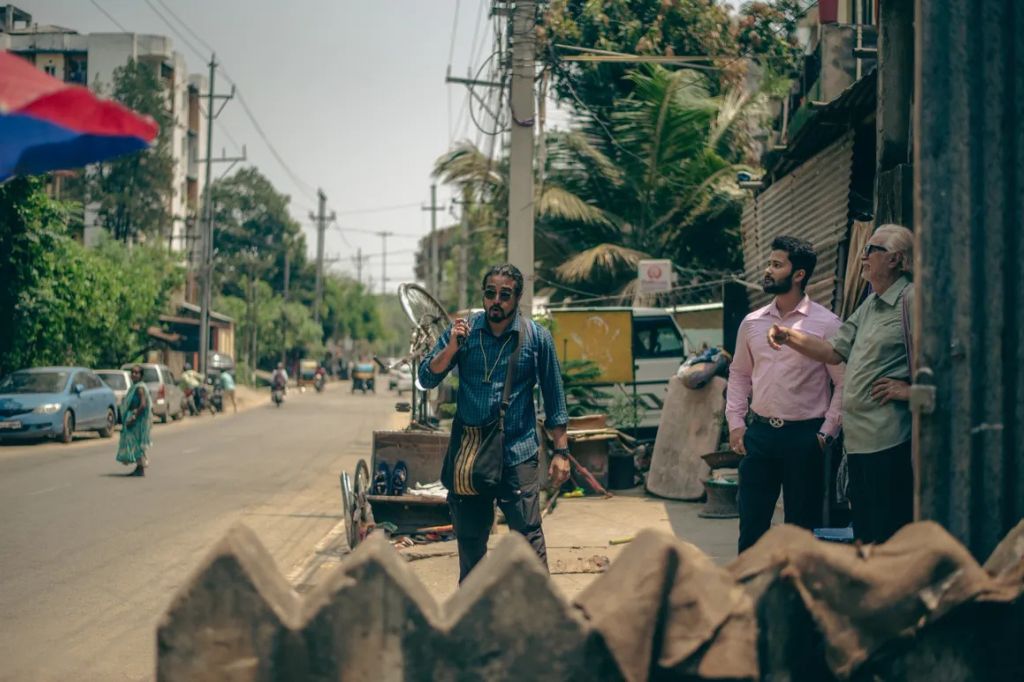
Q. At a time when big-budget films dominate the market, why choose to release a small, independent film like Taarikh?
A. Arundhati Sarmah Baruah: I honestly believe that, at the end of the day, there are only two kinds of cinema—good cinema and bad cinema. If you create a film with honesty and heart, audiences will embrace it, regardless of its scale.
Muktismaan Hazarika: Himjyoti’s first film, Calendar, is a perfect example—made on a modest budget, yet it connected deeply with viewers and did very well commercially. Across India, there are inspiring stories of independent films finding both critical and commercial success. We hope Taarikh continues in that spirit, proving that sincerity in storytelling can always find its audience.
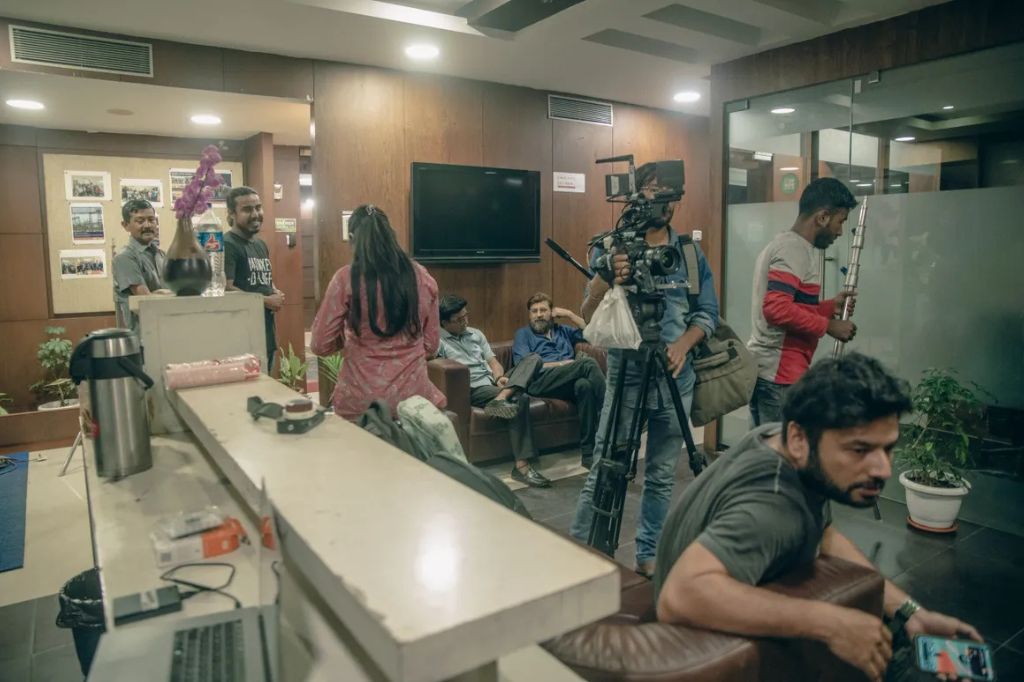
Q. Finally, what do you hope Taarikh contributes to Assamese cinema and the memory of Assam?
A. Arundhati Sarmah Baruah: I hope it leaves a gentle, lasting imprint. For Assamese cinema, I want it to show that small, heartfelt films have value.
Muktismaan Hazarika: For Assam’s collective memory, I hope it reminds us that even in tragedy, there is resilience, and that moving forward doesn’t mean forgetting.

